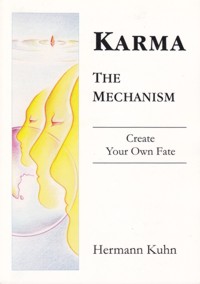1 - We experience the first stage of development (mithyaktva)
as a state in which we are deeply absorbed by our convictions, emotions, our activities and by the events the world confronts us with.
Though we might think we fully control our life, any closer and deeper look reveals a drastically different picture:
We might feel perfectly normal and clear in this environment, but this is only due to the fact that we know no alternate state that may introduce us to a different and more satisfying pattern of life. We live in a dense emotional cocoon we are hardly ever aware of. Though friends sometimes alert us to this condition, we have no idea how to get out of this almost hypnotic state. None of the goals we pursue on this level leads systematically to the experience of higher stages.
It is a state of delusion and flawed ideas how the world functions. All convictions, belief systems, viewpoints and opinions we found our life on retain us on this level - irrespective if we acquired them by our own efforts or accepted them from others. Even when presented with truth, we either are incapable of recognizing it or take it for false.
We certainly can find our way out of this stage. Yet for this we need to introduce new components into our life that open opportunities[1] for growth. Otherwise it lasts eternally.
When we leave this stage (even if only for brief moments of insights), we proceed directly to the fourth stage (avirata-samyaktva) without experiencing gunasthana two and three
All components necessary for this process already exist within us and in our immediate environment. We only need to recognize them, direct our attention towards them and then activate them for our growth.
'Attraction to Karma', commentary to Sutra 12 describes what conditions enable the spontaneous experience of more advanced stages of development.
 Hermann Kuhn
Hermann Kuhn
